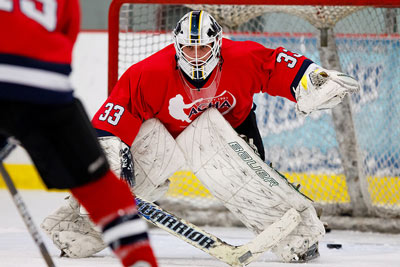 If you were a student-athlete while in college, chances are you devoted much of your time practicing and competing. In fact, many student-athletes find it difficult to get involved in other activities while in college because of the time it takes to play their particular sport. While graduate schools look for well-rounded candidates to admit to their programs, former student-athletes are also extremely attractive candidates. This is due, in large part, to the fact that college athletes often develop skills that will make them extremely successful as post-baccalaureate students. With that in mind, here are just some of the reasons why many college athletes are extremely successful when navigating the demands of graduate school.
If you were a student-athlete while in college, chances are you devoted much of your time practicing and competing. In fact, many student-athletes find it difficult to get involved in other activities while in college because of the time it takes to play their particular sport. While graduate schools look for well-rounded candidates to admit to their programs, former student-athletes are also extremely attractive candidates. This is due, in large part, to the fact that college athletes often develop skills that will make them extremely successful as post-baccalaureate students. With that in mind, here are just some of the reasons why many college athletes are extremely successful when navigating the demands of graduate school.
1. Student-Athletes are Excellent Communicators
As a college athlete, you are always practicing your communication skills, whether it be working with your teammates in practice or talking through your strategy during a game or match. In addition to communicating with teammates, you also have developed the ability to speak candidly and professionally with coaches and professors about conflicts, time restraints, injuries, and many other issues that arise during your time in college. This skill is extremely invaluable and will allow you to excel in graduate school as you navigate group projects, public speeches and class participation. Your graduate professors will soon find that you have a leg up on other students.
2. Student-Athletes Manage Time Wisely
College athletes are constantly struggling to find enough time in the day to do the work required as well as carve out much-needed free time. Because of this, you probably had to keep a tight schedule to fit everything in, and for the most part, you accomplished more in a single day than many of your peers. The ability to manage time wisely is one of the most important skills that college athletics has taught you, and it will set you apart in both graduate school and your career. Graduate school demands a great deal of your time, and therefore, you will already be a natural when it comes to meeting the strenuous workload.
3. Student-Athletes are Analytical
As an athlete, you are naturally analytical and strategic. Whether it be analyzing tapes of your opponents or anticipating what is going to happen next, you are hard-wired to look at all angles in order to make the best decision. This is a great skill to bring into a graduate school setting, as it will allow you to think critically about your assignments and lectures, making you more successful as a result.
4. Student-Athletes are Detail-Oriented
Chances are, if you are a college athlete, you are somewhat detail-oriented. You likely needed to remember things such as what foods you should be eating to replenish your body, how much water you should drink, how much sleep you need to stay healthy, etc. Therefore, being detail-oriented enables you to understand the little things that need to get done on a daily basis to be successful. This will be important in graduate school, as you will likely have project-based assignments that require the little details to complete.
5. Student-Athletes Accept Criticism Well
The most important part of coaching is to show athletes what they can do to improve their fundamentals, strategy and overall performance. Therefore, as a student-athlete, you have had much practice learning to accept constructive criticism. This will be especially helpful in graduate school, as your instructors and peers will constantly give you feedback to help you improve. In addition, this quality will reflect positively on your overall character, which instructors, peers and potential employers find important.
6. Student-Athletes are Goal-Oriented
All student-athletes have individual goals, and once they are achieved new ones are created. In other words, there is always something to work toward when it comes to college athletics. This will take you far in school and life in general, as professors and employers like to see outcomes. Staying on top of your goals shows your professors you are eager to learn and thrive in your future industry.
 Article contributed by Brandon Capaletti
Article contributed by Brandon Capaletti
Brandon Capaletti is the Vice President of Cisco Athletic, a Maryland-based athletic apparel manufacturer that designs, produces and distributes custom uniforms for 18 different sports including basketball, soccer, and baseball.
